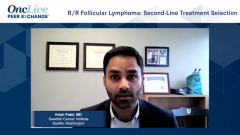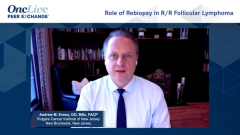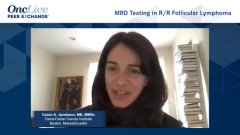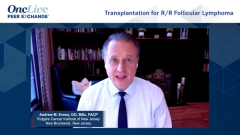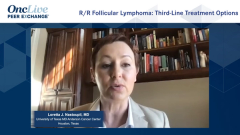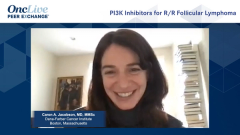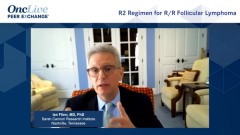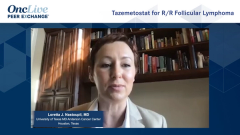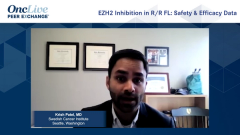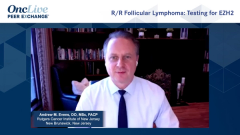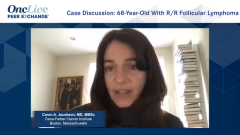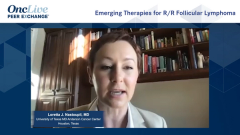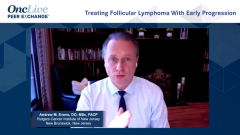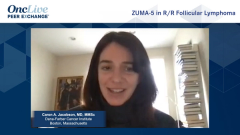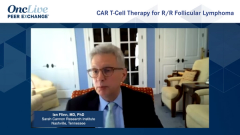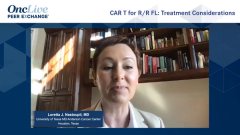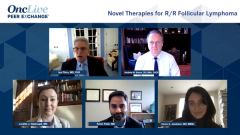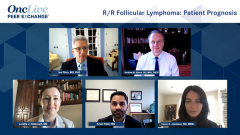
Novel Therapies for R/R Follicular Lymphoma
A panel of hematologists/oncologists remark on the transformations occurring in relapsed/refractory follicular lymphoma as newer, novel therapies continue to emerge.
Episodes in this series

Ian Flinn, MD, PhD: Andy, are there any other new CAR [chimeric antigen receptor] T-cell therapies that you’re excited about that might be applied to follicular lymphoma? We’re seeing a variety of second- and third-generation drugs that are coming through with improved adverse event profiles, perhaps even in vivo expansion of the cells. Any thoughts there?
Andrew M. Evens, DO, MSc, FACP: I think you’re exactly right, and it’s all of the above. In terms of new therapies out there, there’s a third that’s hopefully going to come to market. It’s been slowed a little, at least in the diffuse large B-cell space, because of COVID-19 [coronavirus disease 2019] and inspection reasons. But yes, there are double engagers. There’s a CD19/CD20 drug being studied. There are natural killer [NK] cells—NK CAR T—at Loretta’s institution and many others that are being studied. It’s an exciting time to have all of these targeted therapies being explored. And then of course, maybe to wrap it up a little, how do you ultimately sequence or even combine these? Should we combine lenalidomide or other rational drugs to CAR T-cell therapy, whether during therapy or as maintenance therapy? So these are really exciting times, Ian, in follicular lymphoma, in terms of therapeutics.
Ian Flinn, MD, PhD: Great. I think that’s exactly right. Let’s go around the bend here and get your final thoughts on things that you’re excited about. Thank you, Andy, for leading off. Loretta, what excites you most? Any final thoughts here this afternoon?
Loretta J. Nastoupil, MD: I think each year it’s better news for patients. We have more and more treatments that are effective. We’re getting better at managing the toxicity profiles of these drugs. My expectation is the bispecific antibodies will be approved, and they’ll probably move into combination strategies. And so, this whole argument of CAR T versus bispecific therapy will probably be short-lived. But again, good news for patients.
Ian Flinn, MD, PhD: Absolutely. Krish, any thoughts?
Krish Patel, MD: I think follicular lymphoma is one of the most heterogeneous lymphomas we treat. Just like Loretta said, having many different tools that fit our many different kinds of patients is what is really exciting about this.
Ian Flinn, MD, PhD: And Caron, I’m going to leave you with the last word here.
Caron A. Jacobson, MD, MMSc: It’s hard to follow a lot of these forward-looking comments in the field. I echo everyone’s optimism. With each year we have 2 or 3 new fields of therapy that are transforming the landscape. We have all been concerned about patients in the third line and beyond, and now we’re concerned about patients in the fifth and sixth line. That’s progress.
Ian Flinn, MD, PhD: Perfect. Well, thank you again. And to our viewing audience, we hope you found this OncLive® Peer Exchange® discussion to be useful and informative.
Transcript Edited for Clarity


